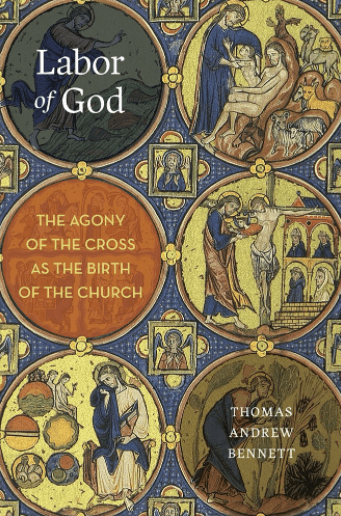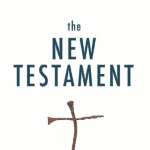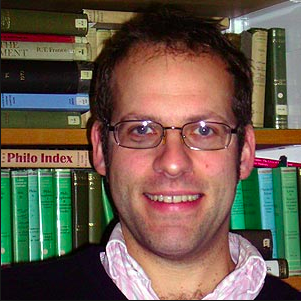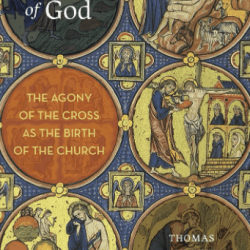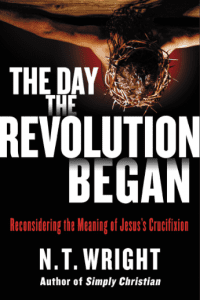Thomas Andrew Bennett, in his book The Labor of God, contends the biggest problem with atonement theories is that they resolve a problem but not the fullness of the problem. Here are his words in the next four paragraphs:
Of the idiosyncrasies characteristic of contemporary atonement theology, perhaps the most peculiar is that atonement, based as it is on the “at-oneing” of God and humanity, never appears to be concerned with a fundamental change in us. …
Models involving some sort of divine victory are revelatory—Christ exposes the powers for what they are—and efficacious—Christ breaks the chains the powers impose on us. But aside from clarifying the state of the world and perhaps clearing out some barriers to certain life patterns, it is again hard to see how this brings union to God and humanity.
In some ways the cross as the labor of God is a work of protest— protest against every proclamation of the cross that concedes the church’s increasing irrelevance by ratifying the status quo in which hearts remain unmarked and unturned and unchanged in the face of the crucifixion of the Son of God. What does the cross accomplish? What does it gain? What life is born from the cries of birth and their accompanying scars? The framing of the question itself points us in the direction of the answer: the divine labor creates new life, new people who bear the nature not of earthly parents but of the true fathering and mothering God. The cross creates a new race, a different sort of people with different blood, different parents, different DNA, even a brand new extended family. …
Penal substitution and satisfaction, for example, give fine accounts for how the cross removes a bone of contention between us and God, but they do not explain how the cross renews us. That is to say, they do not connect the sufferings of Christ to a new nature or a new life. Properly speaking, that job belongs to somebody else, the Holy Spirit perhaps.
Bennett studies sin in the Bible and shows convincingly and compellingly — few seem to see how big of an issue this is in atonement theology — that sin is bigger than, but includes, guilt. Sin is big and is active; it attacks and confounds and kills. More is involved than moral agents making morally bad decisions and more is involved than guilt; the more that is involved the more is needed in atonement theology. He’s right: “the biblical and theological vision of sin bears little resemblance to crude forensic interpretations” (65). a gospel, let this be said with force, that is not shaped by this more will be a little gospel, which is precisely what the soterian gospel is — a little gospel dealing with one fraction of the sin problem.
Thus, Bennett is asking if our soteriology matches our hamartiology. In a day when more and more are convinced sin is also systemic, a soterian gospel will not cut it.
A theology of the cross, he is arguing, must be a theology of rebirth.
Bennett points us to Titus 3:5:
he saved us, not because of any works of righteousness that we had done, but according to his mercy, through the water of rebirth and renewal by the Holy Spirit.
And to 1 John 3:9-10:
Those who have been born of God do not sin, because God’s seed abides in them; they cannot sin, because they have been born of God. The children of God and the children of the devil are revealed in this way: all who do not do what is right are not from God, nor are those who do not love their brothers and sisters.
What we need, then, is total rebirth:
Spiritual birth is best described in the following manner: At the cross, Christ labors to bear spiritual children, replacing minds corrupted and hollowed out by sin with minds that firmly and completely grasp their true origin. Christ extricates them out of corrupt familial webs, systems of relationships wholly mired in spiritual blindness, birthing them into a new family, God’s family, the church (74).
So what’s the problem the gospel resolves?

